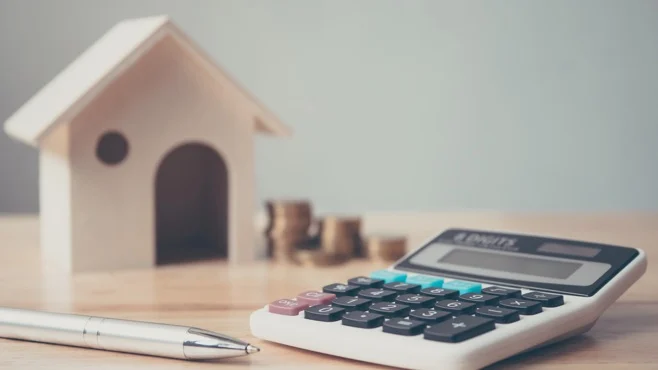Buying a house is a major investment and for most people, taking out a mortgage is the only way to finance it. Overpaying your mortgage can be a great way to reduce the amount of interest you pay over the life of the loan and can help you pay off your mortgage faster. However, it is not always the best decision for everyone. In this article, we will discuss whether you should overpay your mortgage in the UK and things to consider before making a decision.
What Is Overpaying Your Mortgage?
Overpaying your mortgage means paying more than your required monthly mortgage payment. This extra payment goes directly towards your principal balance, which means you will pay off your mortgage faster. Overpaying can help you save a significant amount of money on interest payments over the life of the loan.
Why Consider Overpaying Your Mortgage Now?
The current increasing interest rates make it an ideal time for people to consider overpaying their mortgages (if you can afford to). Doing so could result in thousands of pounds in savings and potentially lead to financial freedom much sooner in life.
If you have a mortgage, you should already be thinking about this as an option as many experts are advising that the higher mortgage interest rates in the UK market right now are likely to become the new normal moving forwards. The days of close to zero interest rates are unlikely to be returning anytime soon.
In this article, we will discuss the potential benefits and drawbacks of overpaying your mortgage, as well as some of the best use cases for doing so. With this information in hand, you’ll be able to make an informed decision about whether or not overpaying your mortgage is right for you and your circumstances.
Should You Overpay Your Mortgage?
Paying more than the minimum amount on your mortgage can be a great financial decision. By voluntarily overpaying, you can save hundreds or even thousands in interest payments, reduce the term of your loan, and build equity in your home faster. Overpaying on your mortgage is also a great way to take control of your finances and ensure that you are not weighed down by debt for an unnecessarily long period of time.
Besides your regular monthly payment, you also have the choice to supplement it with either a single lump sum or through an incremental payment structure. This can help in reducing the overall loan amount faster.
Those extra payments will reduce the debt you’ve created from buying the home. This means that you’ll be able to pay off your mortgage sooner. It is essential to make sure that any overpayments go towards reducing the debt and shortening the term of the loan rather than reducing your monthly payments.
Although when it comes to mortgages, there are various restrictions and requirements that can differ between lenders. It is essential to be aware of the specific rules and regulations of your agreement in order to make sure you do not violate any of them when making overpayments. Before doing so, it is essential to check any restrictions that may be in place with your lender or mortgage provider.
Strategies for Overpaying Your Mortgage
If you have decided to overpay your mortgage, there are several strategies you can use to make the most of your extra payments:
- Lump-sum payment: One strategy is to make a one-time lump-sum payment to your mortgage. This could be a bonus from work, an inheritance, or any other windfall.
- Regular extra payments: Another strategy is to make regular extra payments on your mortgage. This could be done monthly or quarterly, and could be a fixed amount or a percentage of your monthly payment.
- Refinance to a shorter term: Refinancing your mortgage to a shorter term can also be a strategy for overpayment. By refinancing to a shorter term, you may be able to lower your interest rate and pay off your mortgage faster.
- Bi-weekly payments: Making bi-weekly payments instead of monthly payments can also be a strategy for overpayment. By making a payment every two weeks, you will make an extra payment each year, which can help you pay off your mortgage faster.
- Round-up your payments: Another strategy is to round up your monthly payment to the nearest £50 or £100. This can help you pay off your mortgage faster without putting a strain on your budget.
- Make use of bonuses: If you receive an annual bonus, consider using it to make an extra mortgage payment. This can help you reduce the amount of interest you pay over the life of the loan.
When using any of these strategies, make sure to let your mortgage lender know that you want the extra payment to be applied to your principal balance. Otherwise, the lender may apply it to your next month’s payment, which will not help you pay off your mortgage faster.
Advantages of Overpaying Your Mortgage
Overpaying your mortgage can be a good idea if you have extra money to spare and want to reduce the amount of interest you pay over the life of the loan. Here are some reasons why overpaying your mortgage might be a good idea:
Less Debt with Lower Interests
Paying off more of your mortgage is beneficial in many ways. It reduces your debt, brings you closer to becoming mortgage-free, and also lowers the amount of interest you pay. These aspects make it a significantly good financial decision in the long run.
Most efficient use of your savings
By overpaying your mortgage, you can reduce the amount of interest you pay over the life of the loan, potentially saving thousands in the long run. Additionally, with low-interest rates for savings accounts, it’s likely that what you’d earn from those funds is much lower than what you’d save by overpaying your mortgage.
Reduce Tax
Overpaying your mortgage can potentially help you cut down on taxes. Currently, if you earn over £1000 in interest per year you are expected to pay tax on this additional return. So it may be more cost-effective and tax efficient to use your savings to overpay your mortgage rather than earn interest (above the £1k allowance) and then have to pay tax on it.
Get Better Bargains
Paying extra towards your mortgage can be advantageous in terms of reducing the loan-to-value ratio. This ratio is calculated by comparing the market value of your property to the amount owed on it. As you continue to pay off more of your mortgage and if property prices go up, this figure goes down, which is how overpaying helps you out.
Reducing your LTV is brilliant, as it can help lower the interest rates you get when you remortgage. Lenders often use this figure to determine the offers they make, and if they like what they see, they’ll be more likely to offer you a better deal. Paying off some of your mortgages before remortgaging can make all the difference in terms of getting a great deal.
Lower your mortgage payments
Lower your monthly payments: Overpaying your mortgage can also lower your monthly payments. By reducing the principal balance of your loan, you may be able to reduce your monthly mortgage payments into the future when you may have less money to spend.
Downsides of Overpaying Your Mortgage
However, there are also some reasons why you might not want to overpay your mortgage:
Overpayment Fees
Fixed-rate mortgages usually come with a period of commitment, during which you would have to pay an exit fee if you decide to switch lenders. If you repay too much on your mortgage, you may be charged an Early Repayment Charge (ERC) of 1-5% of the balance. This can be seen as a ‘fine’ for overpaying on your mortgage.
There is often some flexibility in regard to overpaying. Most lenders allow you to make up to a 10% annual overpayment during the fixed term, either as a lump sum or monthly instalments. It is suggested that you check your mortgage documentation before taking this step, though.
Bad for Emergency Funds
Aiming to pay off your house loan can be a great goal; however, it’s also sensible to keep some reserve funds in case of unforeseen circumstances. The pandemic has made us aware that one must always be prepared for the worst. If you have a mortgage that is adjustable, such as an offset or a current account one, then there is no need to worry about not having enough money if you have overpaid. This type of mortgage gives you the opportunity to borrow money back, which has already been paid off.
It’s recommended to have at least three to six months of income saved after taxes in case of any unexpected financial situations or if you’re unable to work. Ideally, it would be great to have twelve months’ pay set aside for such emergencies. Having a substantial sum of money accessible can be beneficial for repairs, living costs, and more. Check out our article on emergency funds here.
Other Debts
If you have other debt, such as credit card debt or student loans, it may be a better idea to pay off that debt first. High-interest debt can be more expensive in the long run than the interest on your mortgage.
Opportunity Cost
Opportunity cost refers to the value of the next best alternative that must be given up in order to pursue a certain action or investment. In the case of overpaying your mortgage, the opportunity cost is the potential return you could earn by investing the extra money elsewhere, such as in stocks, bonds, or other investments.
By overpaying your mortgage, you are essentially putting your extra money into an asset that will appreciate in value at the rate of your mortgage interest rate, which is typically lower than the returns you could earn from other investments. Therefore, if you have other investment opportunities available to you that have higher potential returns, overpaying your mortgage may not be the best use of your extra money.
Is Overpaying Your Mortgage Worth It?
It’s unwise to overspend if you’re on a tight budget. Despite the benefits of speeding up your mortgage loan repayment, it’s vital to ensure that it aligns with your financial situation and is within your means.
It is sensible to consult a mortgage adviser before making a decision; they can help you consider the various options and ensure you are making the right choice.
Bottom Line
If you do decide that you want to pay down your mortgage in a different way than you originally agreed to, it’s essential to speak with your lender & explain what you’re trying to accomplish. Let them know that you’ve decided to make mortgage overpayments rather than reducing the monthly payments, and see what they have to say about doing so.
Ultimately, the decision to overpay your mortgage should be based on your personal financial situation and goals. If you have extra money to put towards your mortgage and it aligns with your financial goals, overpaying your mortgage can be a great way to reduce the amount of interest you pay over the life of the loan and pay off your mortgage faster. However, if you have other debts or investment opportunities that could earn a higher return, overpaying your mortgage may not be the best use of your money.













Recent Comments